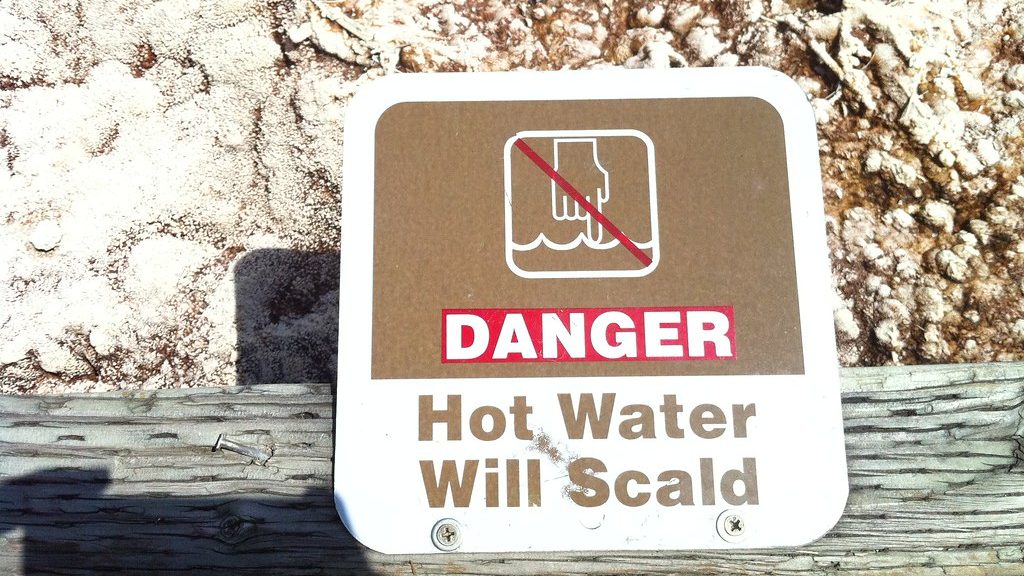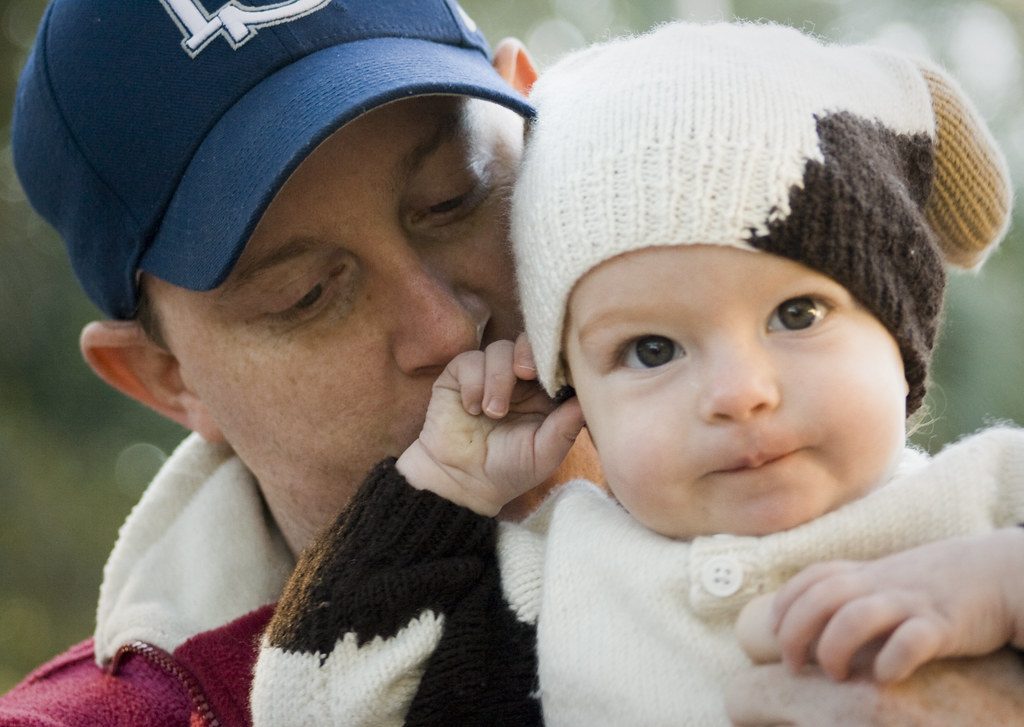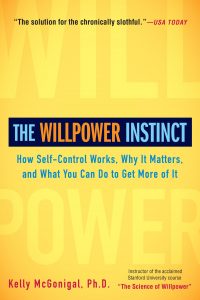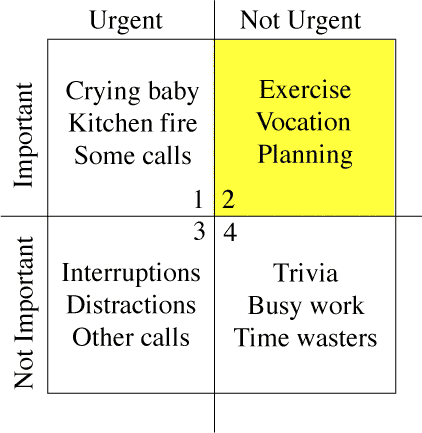
Turn the hot water off first (and 16 other not-so-obvious yet so totally obvious dad tips)
I've learned a lot in my first 6 years and 10 months of being a dad. One thing I learned was when filling up the bath tub for the kids, I should always turn the hot water off first.
Fortunately, I did NOT learn this THE HARD WAY. I was just bathing the kids one day, probably sleep deprived and half awake on auto-pilot, turning off the water with complete disregard for the order of operations. Then there was this flash of intuition after I turned off the cold water as I stared at the steaming pillar of hot liquid death mere inches from my toddler splashing happily in the tub.
Turn the hot water off first. – It seems so painfully obvious now. This is just one of a hundred zillion little parentisms you pick up along the way. I won't get into too much detail for each, because each of these could be (and may well become) a blog post of its own.
Talk to your kids – My son was barely 2 years old when it dawned on me. "Holy crap, talking to him makes such a difference!" There I was, telling him no, no don't do this, don't do that and beginning to feel and sound like a broken record. Then I tried explaining to him "don't touch the stove because it's hot and it will give you a booboo. I don't want you to get hurt, so that's why I'm saying no. So please... don't touch the stove."
Even though he was young, he understood a lot more than he could say, and talking to them like people has been helpful ever since. Set clear boundaries and explain things in very simple terms. Their level of cooperation may surprise you!
Set a timer – Transitions are hard, even for adults. You don't believe me? How do you like hearing from that thing next to your bed that beeps every morning? How about getting yanked out of your daydream by the conference call you forgot to prepare for which begins in 2 minutes!?We hate transitions. We hate feeling rushed. Kids and toddlers... they super hate transitions. Next time you need them to turn off the TV for bed, tell them they have 5 minutes left. Get them mentally prepared for the transition. Make sure they acknowledge the 5 minute warning. Ask them to repeat back to you what they are going to do when that timer goes off. "Turn off the tv" they reply in unison.
There is a pitfall of the 5 minute warning. Eventually they will want to keep hitting snooze on everything. Bargaining for another 1 minute, another 2 minutes, 5 more minutes, etc. This is where setting clear boundaries comes in. Tell them in advance that if they want more time, they can ask for one "5 more minutes" but when the timer goes off, that's it. No more 5 minutes.
Let them turn it off themselves –
 That brings me to my next point. If I turn off the tv for her... forget about it. My 3 y/o daughter MUST do it all by herself. If her brother turns it off for her.. Settle in for a 15 minute meltdown. Consoling her requires that I turn the tv back on resume the show she was watching and hand her the remote so that she can stop and turn it off herself.
That brings me to my next point. If I turn off the tv for her... forget about it. My 3 y/o daughter MUST do it all by herself. If her brother turns it off for her.. Settle in for a 15 minute meltdown. Consoling her requires that I turn the tv back on resume the show she was watching and hand her the remote so that she can stop and turn it off herself. She will still be shaken for a good few minutes after this traumatic event. Did I mention that my daughter is very dramatic? #3yearoldproblems
Set a bedtime alarm – I don't know why kids (pretend to) hate sleep so much, but I'm convinced that they would stay awake in perpetuity if left unchecked. Between that and the forgetfulness and absent-mindedness of their parents, the bedtime alarm reminder is a must! This little chime goes off 5 minutes before their official 8 o'clock bed time each night. This is when they of course begin bargaining for more time.
On a good night, we are done with putting them down and relaxing on the couch by 8:30. aaaaah!Of course there are the bad nights where their chaos and envelope pushing drags out the bedtime routing til 9:15, but as we all know when it comes to dealing with children... #shithappens
Enjoy screen-free days – One time our TV broke. I thought I could fix it, so we didn't have one for a few weeks. It was glorious! The behavior and mood of the children improved drastically! After failing miserably to fix the tv, I broke down and ordered a new one. What do you know? The defiance, the screaming, the moodiness, and the bickering started right back up again. The kids were young enough at the time that we were able to pretend a few times that the TV was broken again, just so we could get another taste of those good moods and that great behavior!
Now that the kids have wised up to our ruse, we have instituted screen-free days. Right now, it's Tuesdays and Thursdays. It really works wonders!
Create star charts (positive reinforcement) – Our son was getting in trouble in preschool. He was about 4 years old. We would punish him. He would do something else to disrupt his daycare class. We were getting frustrated, and felt like we had tried EVERYTHING. Enter the star chart! We got some magnetic stars and drew a grid on the whiteboard. Each day he had the opportunity to earn up to 4 stars.
Good day at school - He earned this if he got no bad note from his teacher
Clean-up - Earned if he cleaned up each time he was asked
Listening ears - Earned if he listened when he was asked to do something. We have a 3 strikes you're out policy. I ask once normally. I ask the second time and tell him "I'm asking you for the second time now." I ask a third time and he has lost his listening star that day.
Happy star - Earned if he didn't throw a fit when he didn't get his wayAt the end of the week, if he had earned enough stars, he would get the prize. The prize was usually just a small toy or game from the kid's thrift store.
The positive reinforcement approach worked wonders for his behavior. After a couple of months, we no longer had to use it. To this day, he's the most well-behaved kid either of us has ever known. (Not that the star chart is solely responsible, but it did REALLY help!)We are now starting to use a star chart with his younger sister, and while she is slower to embrace it than he was, she has DEFINITELY improved!
Take the poop outside (lose the diaper pail) –
 I was reluctant when my wife came up with this idea, but the diaper pail was just too stinky and gross. The diaper genie was expensive and required expensive bag refills. The more trash-can-like diaper pail we had would use a normal kitchen trash bag and hold a lot of dirty diapers... and they would attract gnats.
I was reluctant when my wife came up with this idea, but the diaper pail was just too stinky and gross. The diaper genie was expensive and required expensive bag refills. The more trash-can-like diaper pail we had would use a normal kitchen trash bag and hold a lot of dirty diapers... and they would attract gnats. What we do instead is just use the little dog poop bags. Put one poopy diaper in one tiny bag. Carry it out to the garbage and don't smell it again! (Re-using plastic grocery bags also works well for this.) No tiny flies buzzing around your smelly diaper pail. No festering cesspool in the room where your baby sleeps. It's a winner! As for wet diapers, we just throw them in our kitchen trash without using a plastic bag.
Let them help / give them chores – Kids and toddlers want nothing more than to be like their parents. They want to do the same things we do. They want us to do the same things they do. They want us to pay attention to them... a lot! It can be super hard to peel the toddler off your leg so you can cook breakfast. Best thing is to let them help you. Give them any kind of job. They will love helping you and they will get better at it every time you let them try.
Always bring a snack – When a child or toddler gets hungry (or a baby for that matter... or my wife for that matter) it's not a pretty sight. Suddenly that reasonable, mild mannered little boy or girl (or lady, haha!) becomes completely irrational. They stop making sense. They don't even realize they are hungry, but they become volatile! They get whiney. They don't listen to a thing you say.... unless that thing is... "Do you want a snack?" BOOM! Suddenly, she's ready to leave the book store without your having to carry her out kicking and screaming.
Give them a choice – This works surprisingly well. Often, the choice can be completely superficial. Just the other day I was doing my broken record routine – trying to get my daughter to brush her teeth and go potty before bed. "Sit on the potty and brush your teeth. Brush your teeth. Here, come here and brush your teeth..." and so on. Then I remembered about the choice! "Hey, which would you like to do first, go potty or brush your teeth?" to which she replied "brush my teeth!"
Giving them the slightest bit of control, even if completely illusionary, can go a long way.
😉 Duly noted.
Read to them every day –
 Certainly not an original tip, and sometimes it's hard when we're super exhausted. But the kids are into the routine. We have read to them every night before bed. If we dare try to get them to go to bed without a book, they completely lose it. It's remains, however, a very credible threat.
Certainly not an original tip, and sometimes it's hard when we're super exhausted. But the kids are into the routine. We have read to them every night before bed. If we dare try to get them to go to bed without a book, they completely lose it. It's remains, however, a very credible threat. If my daughter is giving me a hard time about brushing her teeth, I invite her to choose: Do you want to go straight to bed with no book, or do you want to brush your teeth and then pick out a book? She always chooses the book.
Keep wipes in strategic locations – You never know when there will be a poop blowout, nose leak, or ketchup eruption. Keeping a small pack of wipes in the car, one near the kitchen table, and one in the kid's bathroom has come in handy more times than we can recall.
Get a car potty – They have these tiny collapsable toilets that you can put a plastic grocery bag in. You can just pull over to the side of the road and let your kid do their urgent business. We don't use it often, but it has saved our butts a few times, especially on road trips!
Here's a similar portable potty that I found on Amazon.Give tiny desserts – There's usually just an hour or so between dinner ending and bed time starting. A whole cupcake may have your kid wired for 2-3 hours. What we discovered is that 2-5 M&M's actually qualifies as dessert!
Teach them to ask for help – Around the time they turn 3 years old, they become enamored with the idea of being a big kid and doing everything by themselves. My son would be playing with blocks in the next room by himself.. Totally content. Suddenly he would erupt with sobs and stomp loudly off to his bedroom. Was he hurt? Did he fall!? Nope... he just couldn't get the blocks to do what he wanted. My wife and I told him to ask for help. Try to do it yourself. Try again. Then ask for help.
Teach them to figure it out – After we taught our son to ask for help, we realized we had created a monster. He got a little trigger happy with asking for help, and would do so before even trying. So, I invented the "figure it out" song. If he came to me asking for help before he had tried to solve the problem himself, I would sing the song. "Figure it out. Figure it out! Think about the problem and figure it out!" Surprisingly, he never punched me in the face for doing this, and it seemed to work well. He will now usually try just hard enough to not have a meltdown, and then he'll ask for help.
Above all to me, being a good dad means staying involved. None of my father figures growing up could manage that "simple" task. Remembering their mistakes adds fuel to my resolve.
Kids are smart. They know when you're giving them the attention they desire or just trying to fake it. At the same time, kids are dumb. They will start that fire, or break that glass, or fall down those stairs, or stick that chalk up their nose. Kids are challenging. Kids are intense. Kids are rambunctious. Kids are calm. Kids are gentile. Kids are innocent. Kids are impressionable!

They are adoring little mirrors running around reflecting your traits right back at you. The good, the bad, and everything in between. They say the things you say. They act and react the way that you do. There are a million little things you can do to enrich their lives or scar them for life. It can be stressful at times, wondering if you're doing the right thing as a dad.
Putting in the effort to be your best self and sticking around for them to see who you really are. At the end of the day, this is being a good dad. These little tips have made it easier for me to stay the course. I hope they will help you too.
I'd love to hear about your motivations, insights, favorite tips and #dadhacks in the comments.
Good luck fellow dads!

 by Kelly McGonigal
by Kelly McGonigal
 Evernote – ideas, SOP’s, checklists, and other documentation can be stored in evernote quite easily. They are then accessible from any of my computers or mobile devices. I can even share folders with my team and collaborate on notes.
Evernote – ideas, SOP’s, checklists, and other documentation can be stored in evernote quite easily. They are then accessible from any of my computers or mobile devices. I can even share folders with my team and collaborate on notes.